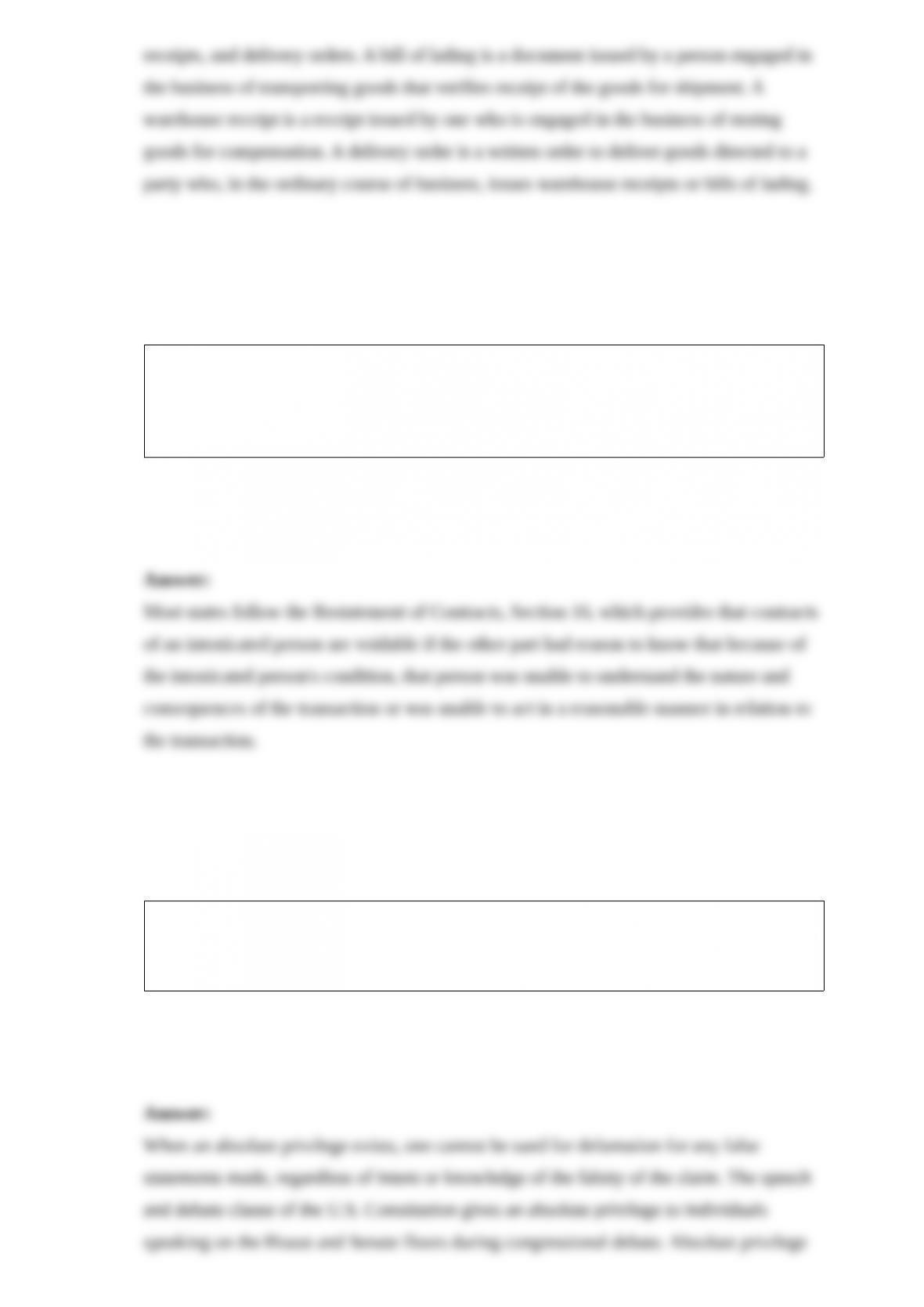A. That the conduct complained of by the plaintiff failed to meet the level of conduct
required for a finding of the intentional infliction of emotional distress.
B. That the plaintiff's complaint regarding the disconnection of his telephone service
was sufficient to support a claim of intentional infliction of emotional distress but that
the plaintiff's other allegations were insufficient to support an award based on the tort of
the intentional infliction of emotional distress.
C. That the plaintiff's complaint regarding the refusal to process his application was
sufficient to support a claim of intentional infliction of emotional distress but that the
plaintiff's other allegations were insufficient to support an award based on the tort of the
intentional infliction of emotional distress.
D. That the plaintiff's complaint regarding representatives hanging up on him were
sufficient to support a claim of intentional infliction of emotional distress but that the
plaintiff's other allegations were insufficient to support an award based on the tort of the
intentional infliction of emotional distress.
E. That the plaintiff would be allowed to proceed as to all allegations because they were
all adequate to support a verdict based on the intentional infliction of emotional
distress.
"Run Around." Millie issues a promissory note to Bob. Bob endorses the note and
transfers it to Anne. Anne endorses the note and transfers it to Henry. Henry presents
the note to Millie for payment. When Henry presents the note to Millie, she asks him
for reasonable identification. He did not have any identification with him and told her
that she had no right to dishonor the instrument. Millie continued to insist, so finally, on
the same day, Bob obtained clear identification and presented it to her. Nevertheless,
even with proper identification, Millie refused to pay the note, claiming that she lacked
the funds with which to do so. After properly providing notification of dishonor to both
Anne and Bob, Henry requested that Anne pay the note, but she told him that he would
have to get his money from Bob. Henry has been trying to call Bob for 35 days, but
Bob did not return his telephone calls. Henry is exasperated; and within 40 days of
when Millie refuses payment, he notifies Millie, Bob, and Anne that the promissory

























































































